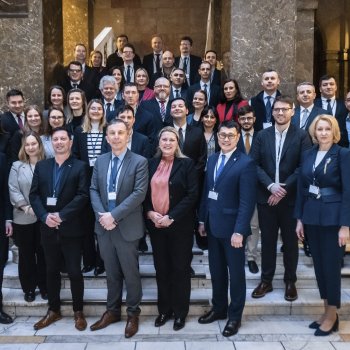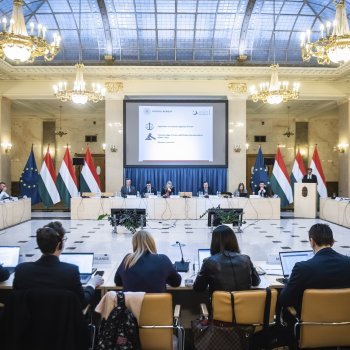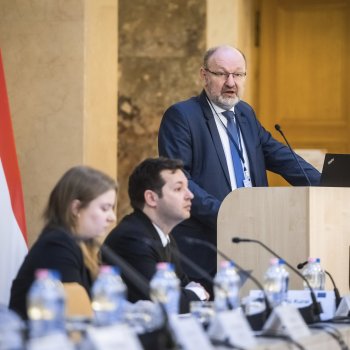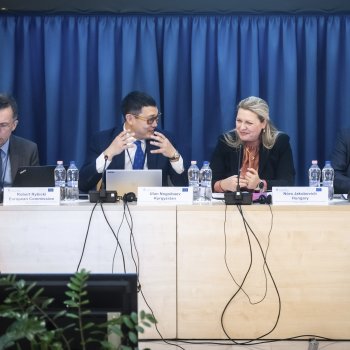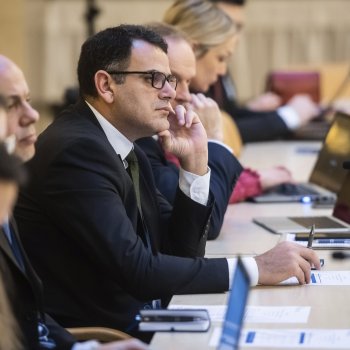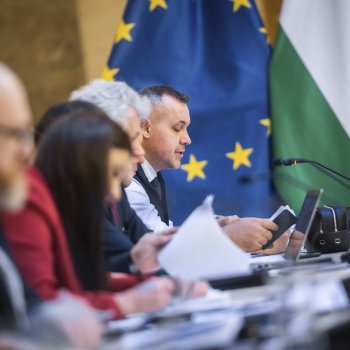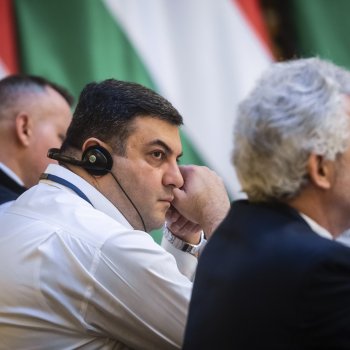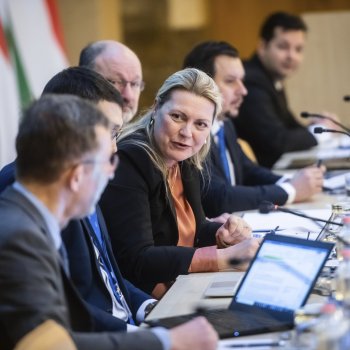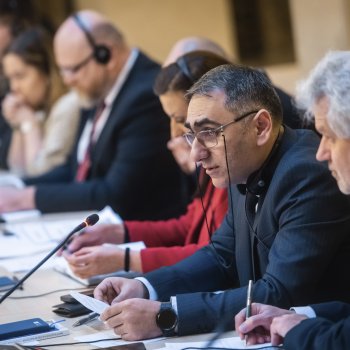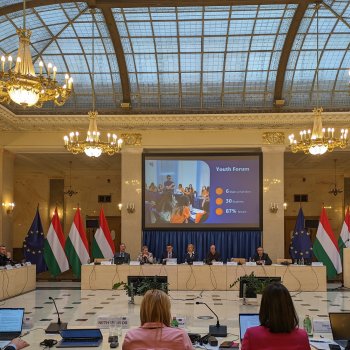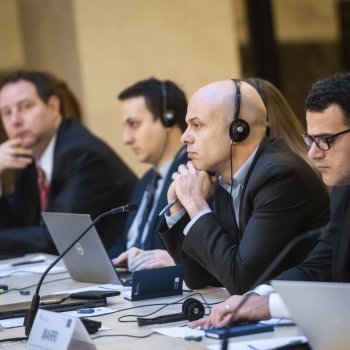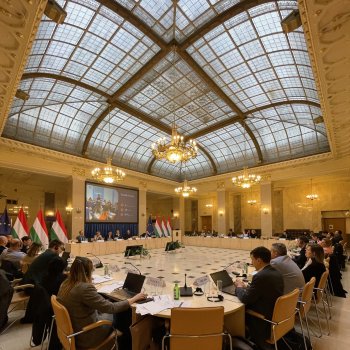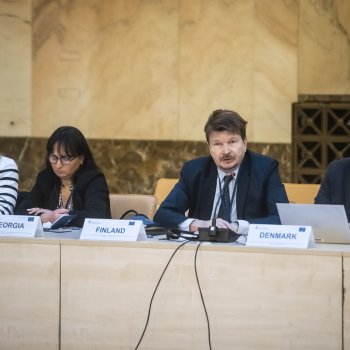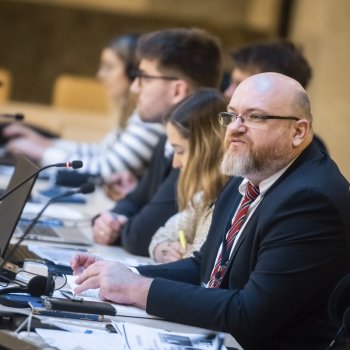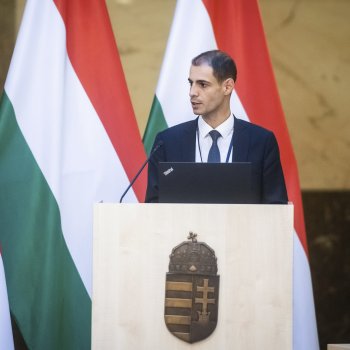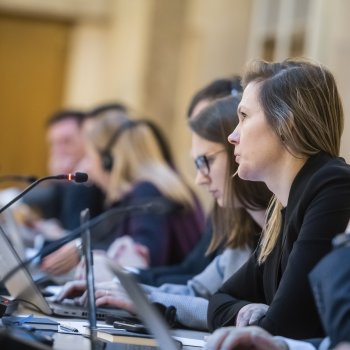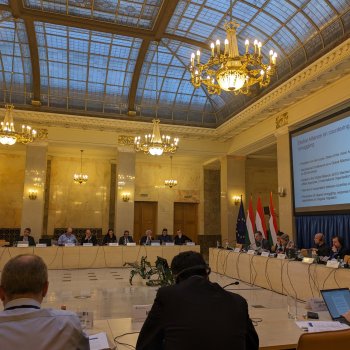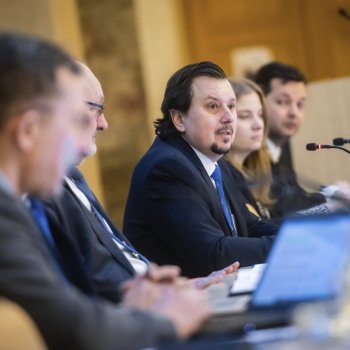On 13-14 February 2024, representatives of 27 Prague Process states, the European Commission, Frontex, eu-LISA, IOM, JCP, MARRI and ICMPD gathered in Budapest for the Kick-off Workshop of Thematic Component 1: Preventing and fighting irregular migration and migrant smuggling.
In his welcoming address, Mr. Mátyás Hegyaljai, Deputy State Secretary of Hungary (leading state, TC 1), highlighted the profound changes experienced since the Prague Process's inception in 2009. Calling for solidarity and support for countries affected by COVID-19, the war in Ukraine, and turmoil in the Middle East, he emphasised the need to focus on humanitarian assistance, investigate the causes of migration, and strengthen the fight against human trafficking. Mr. Ulan Nogoibaev, Republic of Kyrgyzstan (co-leading state, TC 1), invited participants to make active use of this platform to share their experiences and address common challenges in a collaborative manner. Mr. Robert Rybicki, European Commission, provided insights into the EU's migration management policies, including concrete measures to ensure the safety of people coming to the EU. Mr Radim Zak, ICMPD, commended Hungary for hosting, lauded the Prague Process's evolution over 15 years to meet new challenges, and acknowledged its alignment with member priorities and the collaborative EU and non-EU state leadership model of TC, thanking DG HOME for funding support.
The workshop consisted of four thematic sessions: Following a joint assessment of the recent, ongoing or expected irregular migration dynamics across the region, participants addressed the use of innovative technologies in identity management, migrant smuggling and trafficking in human beings, as well as the joint way forward within the TC 1. The workshop provided ample space for discussion. Participants touched on a multitude of operational and legislative efforts and initiatives, sharing their specific national experiences, challenges, and policy approaches.
The first session saw wide-reaching agreement on the need to address the root causes of irregular migration, improve livelihoods in origin countries, and promote legal pathways. Session 2 introduced various technological advancements in identity and border management, illustrating the key role of interoperability and smart border management in tackling irregular migration. On day 2, the intergovernmental exchange focused on countering migrant smuggling and trafficking in human beings at national and international level. A panel discussion provided sobering insights into the challenges posed by the war in Ukraine, highlighting the complexities faced and the dual role of individuals as both perpetrators and victims of trafficking.
The workshop concluded with an outlook into the operational cooperation in the Western Balkans and future activities under the Thematic Component 1. The collective insights from the workshop underscored the critical importance of collaboration, knowledge sharing, and innovative approaches in addressing the multifaceted challenges of migration and human trafficking in the current global context. Participants emphasised the pertinence of the issues discussed, reaffirming the continued validity of the respective thematic provisions in the Prague Process Action Plan 2023-2027.




